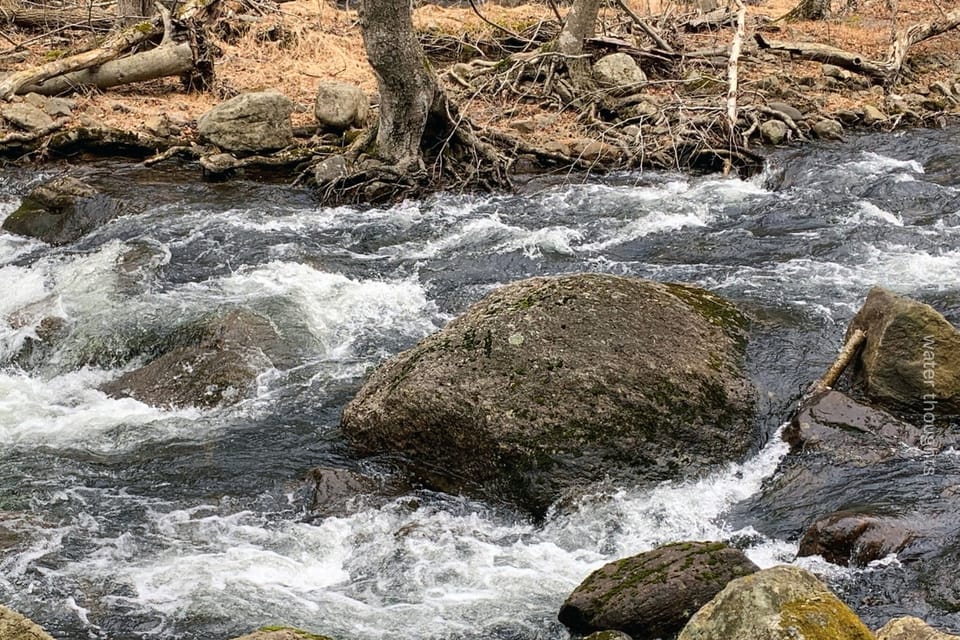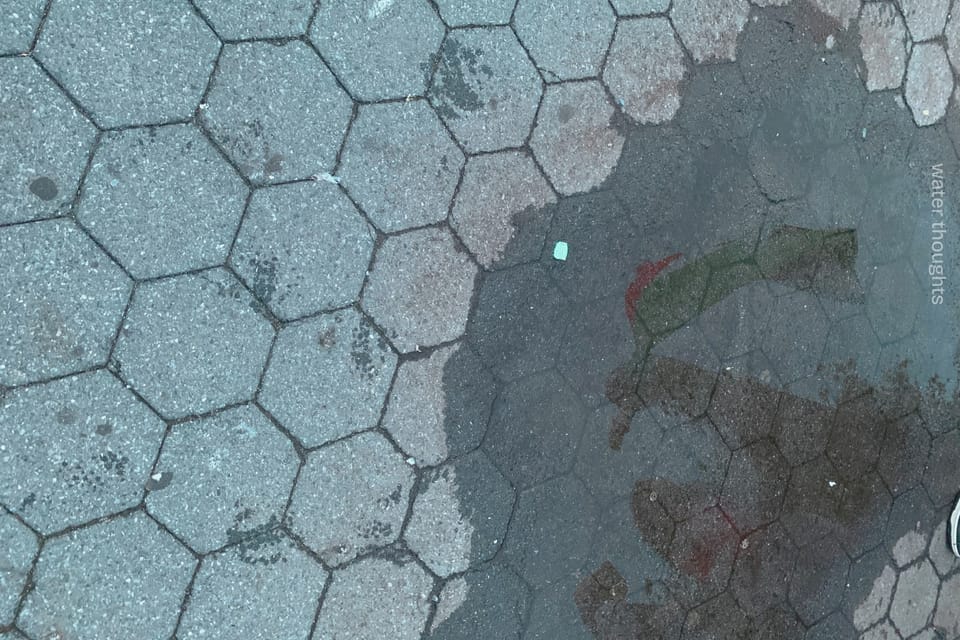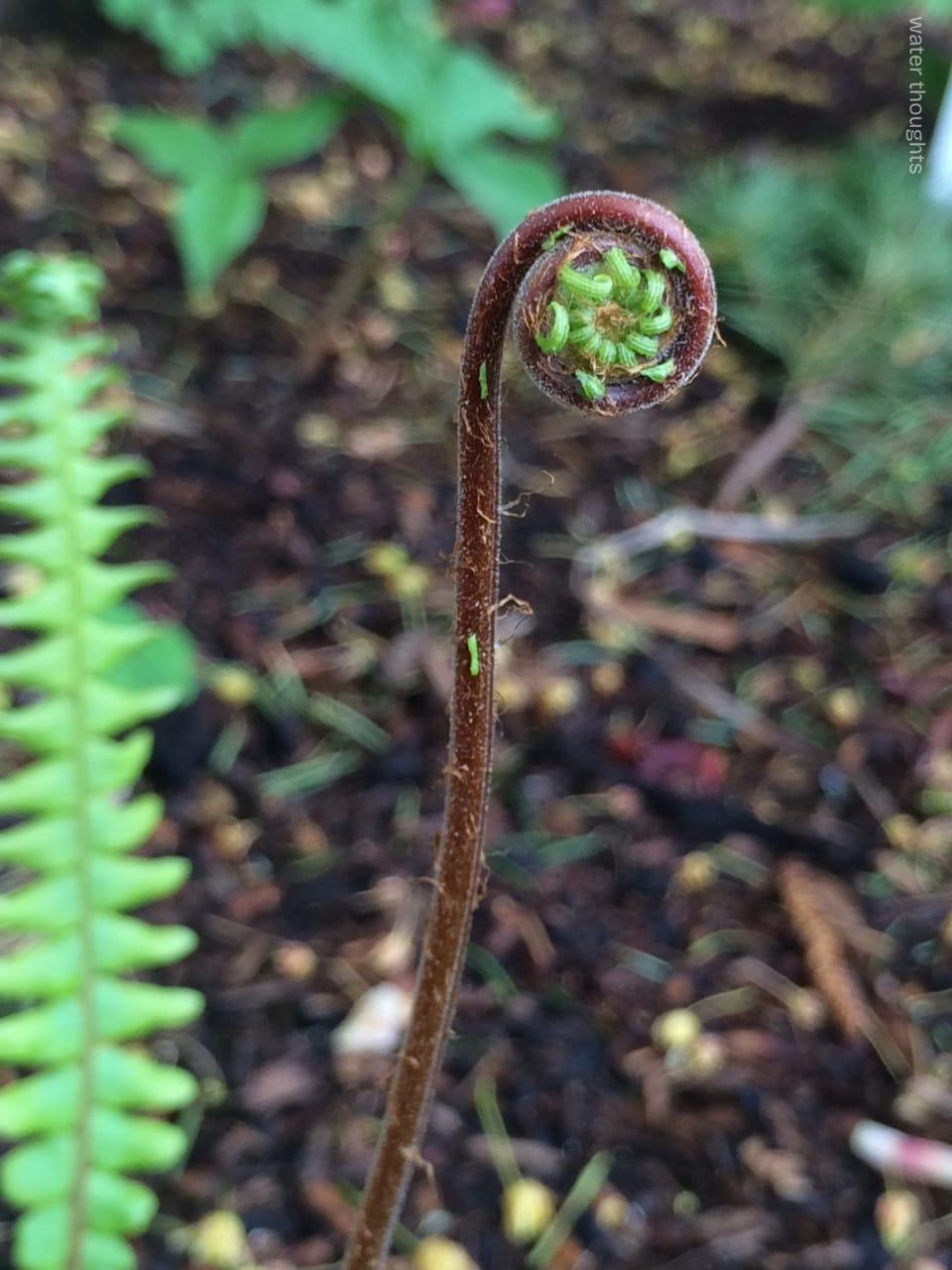hello again
I have been trying to explain about both myself and this website. For me they are seeds for many things. Whenever I attempt to do that, distractions and reflections bring up topics close to my heart. Also, waves, puddles, and being underwater.
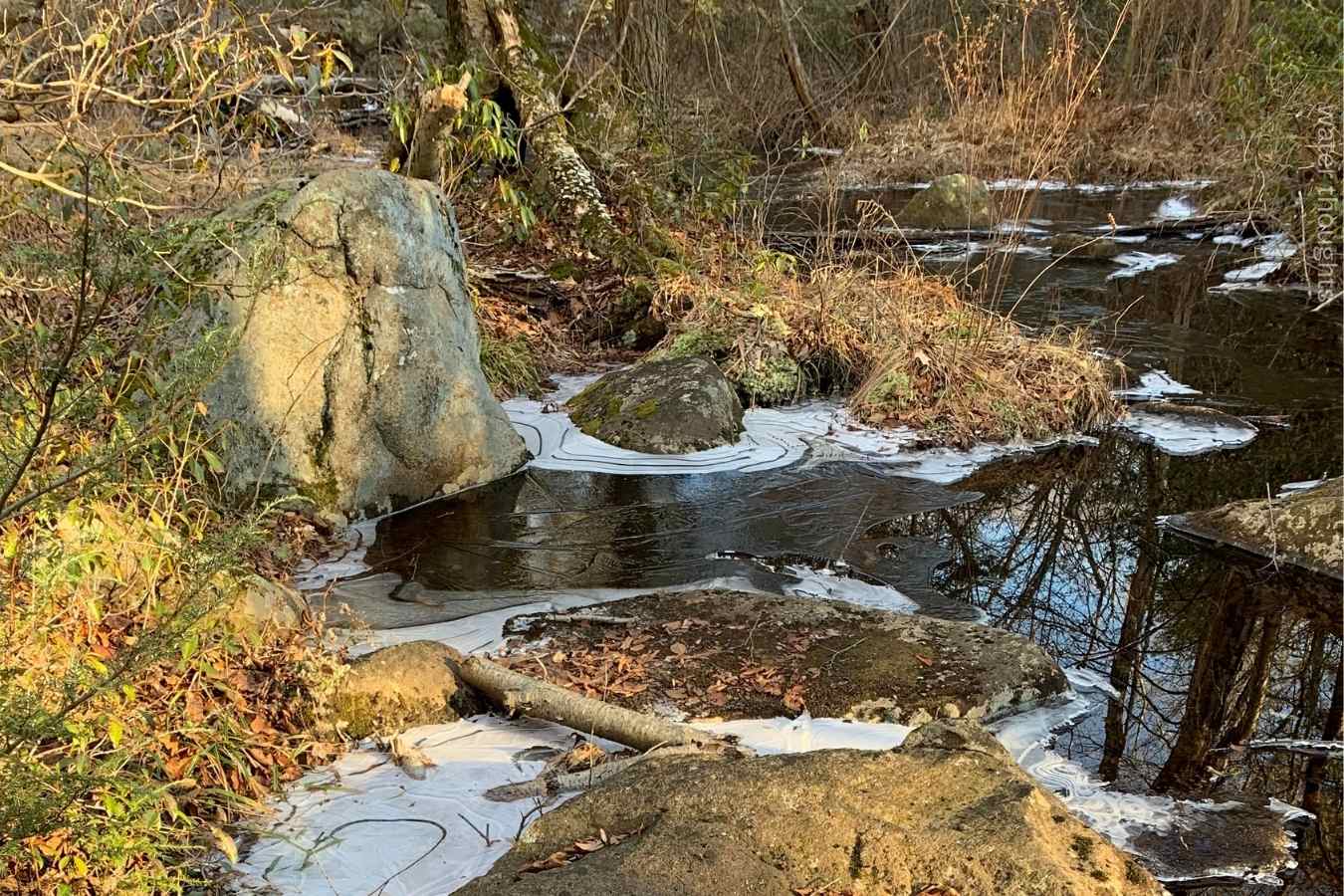
hello. welcome. come in. on. around. somewhere. or be wherever you are, and welcome.
I have been trying to explain a little bit about both myself and this website. For me they are seeds for many things. I will continue to try. Thank you for bearing witness and being a part of it. Most people don’t know the labor disabled people do, when there are so many reasons the labor is not visible or apparent. I still cannot express that part very well, but one day, I want to tell stories of ableism.
murky water..
I previously shared that I started writing this for the about page. As I read the boilerplate text on that page that I replaced, again I felt, as I do in so many places, that this is a site not designed for me. Splashy and elegant, or big and bright, or minimalist and energetic. Yet I'm down here in murky water, but also up in brightness, in the light, with energy mostly expressed physically and in rhythms. Much like a wave.
And for that energy and what drives and supports it, I am deeply grateful. So that I can become more than the puddle that I sometimes have felt to be, and never forget what feeling like a puddle is.
waves of revolutionary actions
I started to write about waves, and found myself writing about partial differential equations, complex analysis, and other ways of studying and understanding waves that my brain no longer understands but keeps a deep connective tissue to. One of my favorite books from that part of my life, An Introduction to the Mathematical Theory of Waves by Roger Knobel, starts with a passage about the nature of waves, which I thought was more interesting for now than a list of everything I'd lost:
At this time we should discuss how we hear. The same thing happens in sounds that happens when a stone, thrown from above, falls into a puddle or into quiet water. First it causes a wave in a very small circle; then it disperses clusters of waves into larger circles, and so on until the motion, exhausted by the spreading out of waves, dies away. The latter, wider wave is always diffused by a weaker impulse. Now if something should impede the spreading waves, the same motion rebounds immediately, and it makes new circles by the same undulations as at the center whence it originated.
In the same way, then, when air that is struck creates a sound, it affects other air nearby and in this way sets in motion a circular wave of air; and so it is diffused and reaches the hearing of all standing around at the same time. The sound is fainter to someone standing at a distance, since the wave of activated air approaches him more weakly.
—Boethius, De institutione musica, 500 A.D.[1]
I appreciated in this passage the reference to "a puddle or into quiet water." At this time I cannot share quite what it brings me to feel, to think. Maybe only at this point a suggestion about perspective or perception, such that reflecting on any small action by anyone working in resistance, refusal, and collective care against colonialism, settler colonialism, and imperialism, that the action has the possibility to influence and connect with the actions of others, in ways we may never see, but that through our actions, maybe even one person may survive who might not have without our small action, and that together, many actions, maybe we all can survive, instead of only a few.
In We Refuse: A Forceful History of Black Resistance, Kelly Carter Jackson shared a story about how her brother, who was born with sickle cell anemia, was able to be cured, and how her sister's sacrifice of bone marrow cells, which made it possible, are an example of why, as she shares, "Revolutions do not necessarily require bloodshed, but they do require sacrifice. My sister could have refused to donate her cells. But the procedure did not require her life." She continued:
The writer and activist Vicky Osterweil reminds us that revolutions can demonstrate the “possibility of better lives for all of us.” [2] A revolution requires sacrificial, life-altering, permanent change for the benefit of everyone, particularly those in most need. A revolution is not a revolution unless it pursues a better society for all. [3] (emphasis mine)
This part of the passage rebounds within my head:
A revolution requires sacrificial, life-altering, permanent change for the benefit of everyone, particularly those in most need.
I share it again partly to reinforce that the small actions I referred to above must be in pursuit of change for the benefit of everyone. Kellie Carter Jackson makes her view clear that what is called the "American Revolution" was not that at all.
The victory of the American Revolution appears sustaining, but only if we examine white power structures. The American Revolution, per my definition, was not revolutionary. It did not protect Indigenous peoples. It did not free the enslaved. It did not replace an exploitative system with an equitable one. It did not forfeit or radically redistribute power and wealth to the most marginalized groups. Revolution is possible; Haiti and Guadeloupe proved as much. In the United States, the real revolution was the Civil War. Americans do not speak of the Civil War as revolution because the American Revolution is what created the United States, but the Civil War was its rebirth.[4]
ideas trapped by disability
In my posts, there will be sections of my writing that might feel circuitous, rambling, and I make a request in advance to imagine, what if that is only the reflection of disability, of finding words to put together to express a thought in the mind, one of many trying to get out?
And if you don’t find or notice the circuitousness, the rambling, then it might only be because I worked to find a way out of the maze, or perhaps it is because your mind works in a similar way. With practice, touching the buffer zone of vulnerability, stretching the window of tolerance within discomfort and but also within relative safety, finding a place and a space and a way, I will try to create paths for myself, that the ideas will more easily find a way out of the maze, until the maze might become something else, as it too needs to change.
underwater clarity
Down in that murky water, in a less visible space, which for me might also be the space of being focused, what appears as attention, maybe it’s really deep effort, and maybe it’s the beginning, the place with squishiness, somewhere deep in the soil beneath a river—it has to start somewhere. Sometimes it feels like I’m a fish. Like I might go underwater, and as I move around, I keep getting distracted, though periodically I’ll surface again, even for a few minutes, then go back down. To others, I learned I might be underwater for a long time.
I wonder, though, is distraction maybe what helps some of us to see what has been invisibilized by people who regularly dehumanize our loved ones through words, policies, laws, and rulings?
moving through boundaries
As I shared in a previous post, my anxiety is part of the turbulence. It can change and create change, repeatedly. When I originally wrote parts of this post, I thought I would be sharing from an eddy downstream of an injury, and since then, as I've shared, I've created a space that feels different, not here or there, and I'm not sure where, but a space to explore.
This was a continuing attempt to introduce parts of myself and what might be most relevant for my posts. Whenever I attempt to do that, distractions and reflections bring up topics close to my heart, and that still feels like water, no boundary or border except that which is external to it, unless we think about ice, and then even that has a material difference that generates a boundary that changes how water moves around it. And mostly, I am still so far from including what I originally wrote weeks ago, and I will keep trying.
books
At the end of each post, I will share books I referenced and recommend unless the post itself already contains recommendations with book covers or the book is not part of recommendations, but was related to a quote or passage I shared. Some books, I will touch on again, but in case that doesn't happen, I will try to include each.
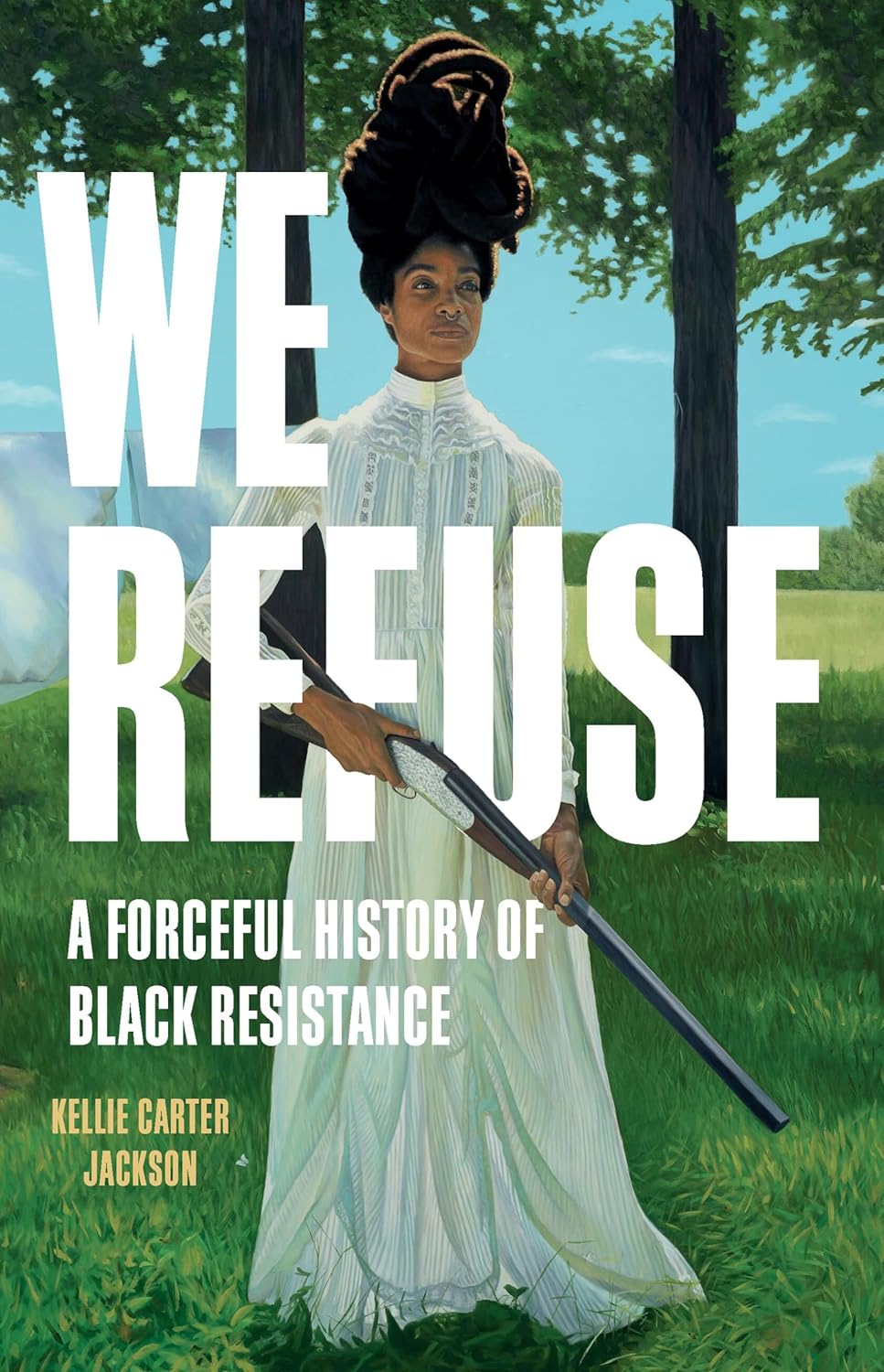
We Refuse: A Forceful History of Black Resistance (2024), a book by Kellie Carter Jackson, published by Seal Press, an imprint of Hachette Book Group.
Get this book wherever you get your books. Please support libraries however you can. Find out many ways to get involved in supporting libraries at Libraries for the People.
Thank you for reading.
notes
Quote from Anicius Manlius Severinus Boethius, Fundamentals of Music, ed. by Claude Palisca, trans. by Calvin M. Bower (Yale University Press, 1989), 21, reproduced in Roger Knobel, An Introduction to the Mathematical Theory of Waves (American Mathematical Society, 2000), 3, by permission of Yale University Press.↩︎
Vicky Osterweil, In Defense of Looting: A Riotous History of Uncivil Action (Bold Type Books, 2020), 245-246, shared in Kellie Carter Jackson, We Refuse: A Forceful History of Black Resistance (Seal Press, 2024), 39, Kindle.
I haven't read Vicky Osterweil's book In Defense of Looting, so I am sharing a link to an article, In Defense of “In Defense of Looting” - Lux Magazine, by Marion Jones, an NYC-based community organizer and writer, that expresses an opinion that appears at a glance consistent with my own experience in cities. Marion Jones writes,In the interview, Chotiner and Osterweil exemplified two opposing positions we’ve seen clash repeatedly since 2016: those interested in reviving the Black radical tradition of the left and those resolved to pit socialism and antiracism against each other. For the latter, invoking the Black-owned small business is an old rhetorical technique meant to defang Black protests by shaming political action that falls outside the bounds of respectable activity. When the movement challenges the economic order, even progressive liberals can become staunch defenders of the status quo.↩︎
Kellie Carter Jackson, We Refuse (Seal Press, 2024, Kindle Edition), 39.↩︎
Carter Jackson, We Refuse, 42. ↩︎
